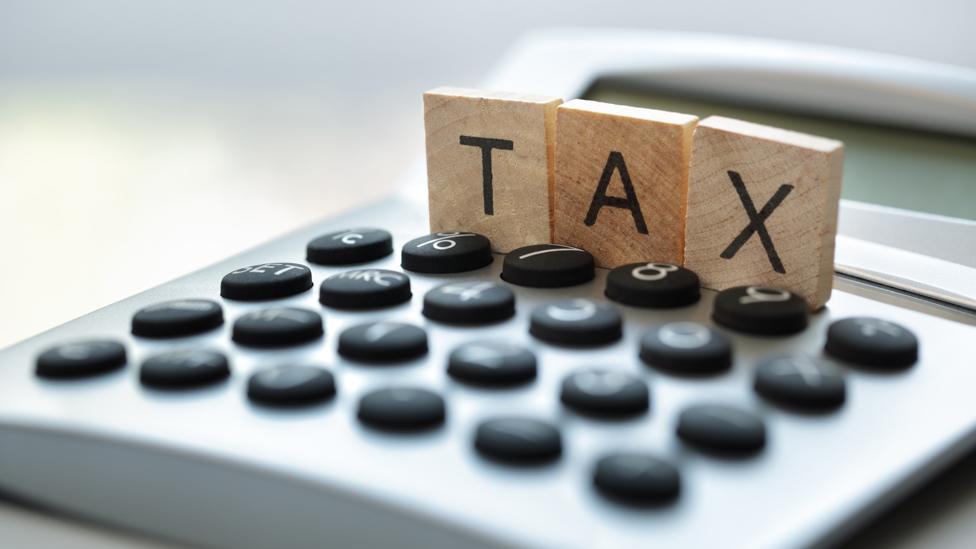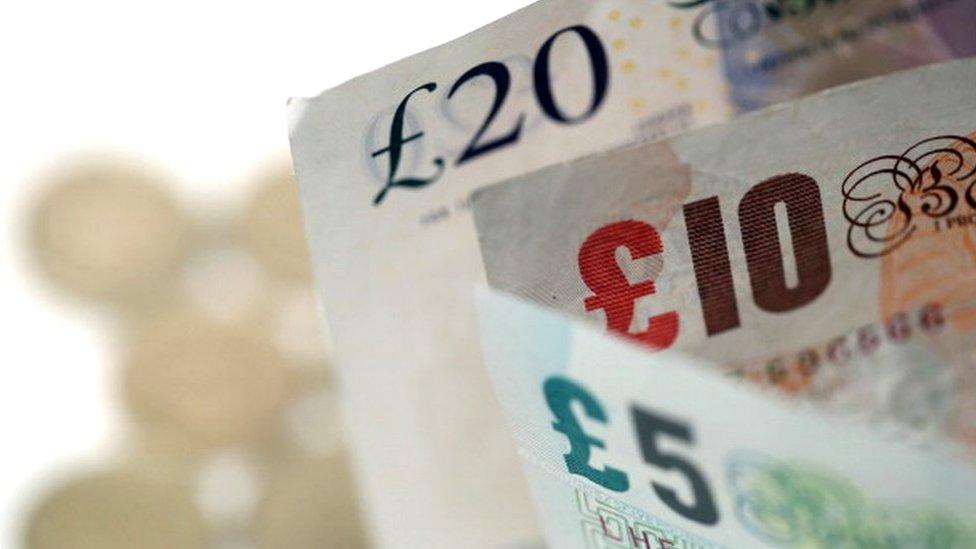New income tax powers for Wales to come into force
- Published
- comments

Putting 1p on the basic rate of income tax would raise between £200m and £210m for the Welsh Government
People in Wales could pay different rates of income tax to those living elsewhere in the UK, under powers that come into effect on Saturday.
Ministers will be able to adjust income tax by 10p in every £1 for each band.
Income tax rates in Wales are staying the same in 2019-20 and ministers have said they would not change them before the 2021 assembly election.
First Minister Mark Drakeford has previously warned that in some circumstances they could be forced to.
10p in each band will go directly to a Welsh Treasury to be spent on public services in Wales, rather than coming via the UK government.
The personal allowance - the amount people can earn before they pay tax - as well as the level of income at which the higher and additional rates apply, are the same as in England and Northern Ireland.

Income tax rates and bands 2019-20

Personal allowance - up to £12,500 - 0
Basic rate - £12,500 to £50,000 - 20% (10p per £1 to UK Government and 10p to Wales)
Higher rate - £50,000 to £150,000 - 40% (30p to UK, 10p to Wales)
Additional rate - £150,000+ - 45% (35p to UK, 10p to Wales)

Putting 1p per £1 on the basic rate of income tax would raise about £200m for the Welsh Government, but Labour committed to not raising income tax in its 2016 assembly election manifesto.
Mr Drakeford was asked in September, in his former role as finance minister, if he was "unequivocally" opposed to altering the rates.
He said: "I'm not going to say never is forever" and manifestos had a diminishing impact as circumstances changed - with Brexit being an unanticipated difference.
The Welsh Government said it would ask the UK Treasury for more, rather than use the income tax powers to boost its budget if the UK leaves the European Union without a deal.
Finance Minister Rebecca Evans said "some £5bn of devolved and local tax revenue will now be raised in Wales and will stay in Wales".
Welsh ministers can also borrow £1bn - twice as much as before - to fund building and infrastructure projects, as part of a deal agreed with the UK Treasury.
Analysis - BBC Wales economics correspondent Sarah Dickins
This has a significance beyond the fact 10p in any income tax we pay will for the first time stay in Wales while the rest goes to the UK Treasury.
It's about linking policies made in Wales more directly with funds, making the assembly more accountable for raising a chunk of the money it spends.
Wales generally has the lowest wages and productivity of the UK's nations and regions - if that changes and taxpayers earn more, the Welsh Government could collect more money in tax.
Discussion has already centred around whether a 1p in the pound increase should go towards social care. The Wales Governance Centre calculated a 1p rise in the basic rate of tax would give Cardiff Bay an extra £184m a year.
With middle incomes in Wales at £26,500 and no income tax paid on the first £12,500 from 6 April, a 1p increase would cost the taxpayer £5 a week.
What will be interesting is whether voters think that's a price worth paying.
- Published12 March 2019

- Published3 October 2018

- Published19 December 2016
